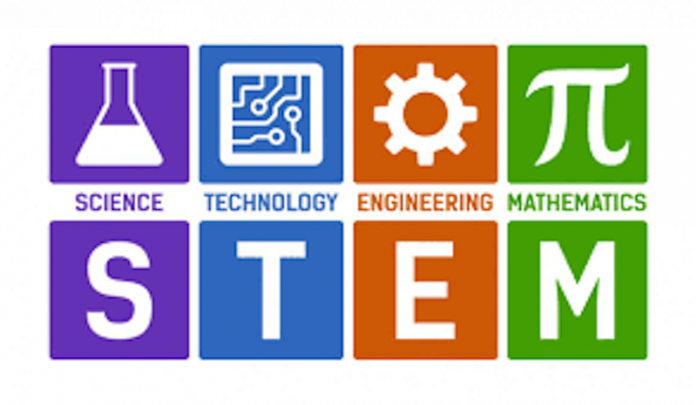
- And we must recognize that as our economy increasingly depends on these revolutionary new advances, many new jobs will be created in STEM fields. If we are to stay competitive as a nation, then we need to build a scientifically literate citizenry and a bank of highly skilled, STEM-literate employees.
As new digital technologies emerge, so do new industries and new sources of wealth for the economy, with the need for new skills.
Science, Technology, Engineering and Mathematics (STEM) has driven tremendous economic growth in the last 10 years and revolutionized every aspect of our lives. When you think about virtually everything you use, from an iPhone to other emerging technologies, you see science at your fingertips. That is why we must all recognize that we live in an era of constant scientific discovery and technological change, which directly affects our lives and requires our input as citizens.
And we must recognize that as our economy increasingly depends on these revolutionary new advances, many new jobs will be created in STEM fields. If we are to stay competitive as a nation, then we need to build a scientifically literate citizenry and a bank of highly skilled, STEM-literate employees.
Scientific and technological issues increasingly dominate the national discourse, from environmental debates on climate change and economic threats from invasive species, to concerns about cloning, genetically modified food and the use of vaccines. New advances in areas such as medicine, genetics, communications and energy all directly affect our lives. As consumers, as business professionals and skilled workers, and as citizens, we will have to form opinions about these and other science-based issues if we are to participate fully in modern society. Scientific literacy is the new demand of our post-industrial society.
In 2011, 26 million US jobs, about 20 percent of the workforce, required in-depth knowledge in at least one of the STEM fields. However, these STEM jobs are not just growing for those with higher educational degrees. In a report titled “The Hidden STEM Economy”, the Brookings Institution states that “Half of all STEM jobs are available to workers without a four-year college degree, and these jobs pay 10 percent higher than jobs with similar educational requirements.”
According to an Information Technology expert, Mr. Jide Awe, in today’s digital era, the STEM fields drive economic growth. “STEM provides the foundation for innovation and fast pace of change the world is experiencing. In the public and private sectors (agriculture, finance, manufacturing, MSME, government MDAs, etc), the use of out-dated tools manual tools and methods stifles efficiency and productivity. Using obsolete equipment limits growth while increasing cost of operations and activities. Conventional approaches are often physical, manual, time-consuming and can be inaccurate. Such practices boost inefficiency. You can’t scale production with structures that are obsolete and wasteful.
By replacing manual and outdated systems and methods, the application of STEM leads to greater efficiencies and productivity in the system. It facilitates value and impact within the economy, resulting in the boosting of job growth and socio economic development”.
He stated that an efficient economy will definitely be globally competitive and therefore critical that policy makers and leaders do more to promote the adoption of STEM education and foster absorption of STEM knowledge into the workforce.
However, Awe added that there are concerns of adequacy of investment, inclusion as well as the nature of STEM education. “Many public educational institutions limit learning to the theoretical aspects of STEM education because infrastructure is lacking. In addition, due to social constructs and divides as well as lack of resources the rural, women and the traditionally excluded do not fully benefit from STEM education.
Continuing, he said, “There are also issues with the inclusion of non technical matters and ethics in STEM education. To make the desired impact in the economy and society, it is essential to understand and imbibe the transition from STEM to STEAM (adding the A for Art). Students must have a deeper understanding of how STEM is connected to people. STEM has economic, social and ethical dimensions that effect people. Ethical concerns are rising – abuse of privacy, hate mongering, fake news, cyber attacks are part of the new reality. There must be grounding on technological development – the good and the undesirable.”
STEM is not about the technical and math alone. “We must ensure that creative and innovative thinking is incorporated. And also realize the need for soft skills and the need to be ethical and humane.”



